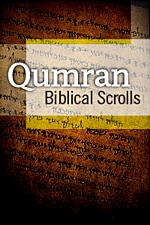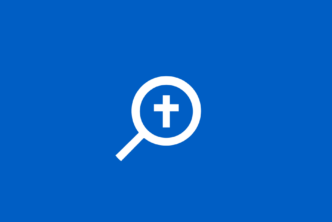If you will be attending the SBL national conference in San Diego next week, you might be interested in some of these additional sessions that Logos is sponsoring. You’ll see new stuff we’ve been working on (like the Qumran Biblical Dead Sea Scrolls Database and the Semitic Inscriptions) and you’ll be able to associate some faces with names!
If you’re not able to make these additional meetings but will be at the AAR/SBL meetings, please do at least drop by the booth and say “hello” to us!
(Yes, we’ll be at the ETS national conference too; we’ll have a post on what’s going on there next week)
AM17-36 An Electronic Database of the Biblical Qumran Scrolls
Date: 11/17/2007 – 11:45AM-12:45PM
Room: New York – MM
This meeting presents, for the first time, a searchable database of the biblical Dead Sea Scrolls. The session will demonstrate searching and display strategies for comparison of the biblical scrolls with the other texts of the Hebrew Bible. In addition, a variety of books now available in digital form for the study of the Dead Sea Scrolls will be presented.
Additional Links:
- Qumran Biblical Dead Sea Scrolls Database
- The Qumran Sectarian Manuscripts
- Studies in the Dead Sea Scrolls (12 Volumes)
- Dead Sea Scrolls Study Edition
- Product Guide for Hebrew Texts and Tools
- The Dead Sea Scrolls Today (VanderKam)
- The Dead Sea Scrolls and Modern Translations of the Old Testament (Scanlin)
AM17-51 Syntactically-Tagged Databases for the Hebrew Bible and Greek New Testament
Date: 11/17/2007 – 1:00-3:30PM
Room: New York – MM
This session will overview the latest quantum leap for computerized research and teaching in biblical texts: databases tagged for syntactical structures and functions. The session is appropriate for anyone interested in computer applications for exegesis and teaching of the Hebrew Bible and Greek New Testament.
Additional Links:
AM 18-21 Electronic Books and Databases for Research in Josephus, Philo and the Pseudepigrapha
Date: 11/18/2007 – 11:45AM-12:45PM
Room: Manchester 1 – MM
This meeting presents an overview of searchable, morphologically tagged databases of the Greek Old Testament Pseudepigrapha, the writings of Philo (the Philo Concordance project), and the Niese edition of The Works of Josephus with critical apparatus. Along with these databases, scholarly monographs now available in digital form for the study of these texts will be presented.
Additional Links:
- Josephus
- The Works of Josephus (Greek, English)
- Flavius Josephus Collection
- Synopsis of the Greek Sources for the Hasmonean Period
- PBI Old Testament Studies Collection
- Jewish Literature Between the Bible and the Mishnah
- Philo
- The Works of Philo (Greek, English)
- Jewish Literature Between the Bible and the Mishnah
- Pseudepigrapha
AM 18-51 A Discourse Annotation Database for Biblical Texts
Date: 11/18/2007 – 1:00-3:30PM
Room: Columbia 1 – MM
This meeting presents a searchable database of descriptive annotations of grammatical features based on their function within the discourse. These annotations describe the pragmatic choices of the biblical writers/editors and their effects. The descriptive aspect of the methodology takes into account stylistic idiosyncrasies. The function-based aspect allows for stylistic comparison. The Greek NT database is complete. Preliminary data for the Hebrew Bible and LXX will be presented.
We don’t have any additional links describing this at present because it is still in development, but you may want to examine some papers by the project editor, Steven Runge, D.Litt, housed on his Logos bio page.
AM 19-11 Electronic Books and Databases for Ugaritic and Northwest Semitic Inscriptions
Date: 11/19/2007 – 11:45AM-12:45PM
Room: Orlando – MM
This meeting includes a demonstration of the use of a searchable database for the Ugaritic corpus (Ugaritic Databank, Madrid) and searchable scholarly reference works for Ugaritic. The session will also feature a new database for Microsoft Windows users for select Northwest Semitic Inscriptions representing languages and dialects such as Hebrew, Aramaic, Phoenician, Moabite, and Ammonite. The inscriptions database includes morphological tagging.
Additional Links:






